
Goose is seen by many as the more traditional and luxury choice for the Christmas roast, with darker meat which is rich and full of flavour. But it is not just at Christmas when our native breed geese come into their own.
For centuries, smallholders have appreciated the multiple benefits of keeping geese that many still enjoy today. Keepers have long been able to make good use of goose eggs, feathers, down and quills, find medicinal uses for its fat, and of course enjoy eating their delicious meat. Geese can also be used for grass control without turning the ground to mud, and they can help remove broadleaf weeds and perennial grasses. They can play an important role in conservation grazing too.
Geese are an economical choice on a smallholding, with multiple benefits for the keeper. The birds have interesting, individual characters and naturally keep guard, but they can be noisy.
There are 11 goose breeds recognised as native to the UK, sadly all of them are rare and categorised as Priority breeds in the current RBST Watchlist. There is fantastic variety among our native geese thanks to each breed's distinct genetic make-up. With the unknowns of future diseases highlighted currently by the ongoing impacts of avian flu, keeping the distinct genetics of each of our native breeds of goose is crucial.
Here are a few of the UK's native geese breeds:
WEST OF ENGLAND GOOSE RBST
Esta historia es de la edición December 2023 de The Country Smallholder.
Comience su prueba gratuita de Magzter GOLD de 7 días para acceder a miles de historias premium seleccionadas y a más de 9,000 revistas y periódicos.
Ya eres suscriptor ? Conectar
Esta historia es de la edición December 2023 de The Country Smallholder.
Comience su prueba gratuita de Magzter GOLD de 7 días para acceder a miles de historias premium seleccionadas y a más de 9,000 revistas y periódicos.
Ya eres suscriptor? Conectar
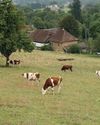
How to Buy a Smallholding in France- Long-time smallholder Lorraine Turnbull looks at the practicalities of moving to rural France
Aspiring smallholders are continually thwarted by the prices of smallholdings and property with land located within the UK. Even the humblest croft in Scotland comes with a substantial price tag and conditions which would make even an adventurous wannabee consider carefully. But all is not lost. For those willing to take the adventure of a lifetime, there is always Europe, and one of the most popular places is France.

Meet the Bournemouth goats and their supporters
These capricious animals are hard workers preserving the natural habitat
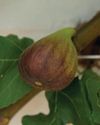
Still warm enough to sit outside with a Pizza
Henrietta Balcon uses fresh figs to create an unusual dish at Harvest time
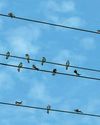
Goodbye to the birds of spring and summer
If you look and listen you might be able to see them preparing to leave says The RSPB
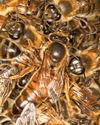
Get ready for the colder weather in the warmth of late summer
Claire Waring advises on doing the best to make sure your colonies survive until next spring
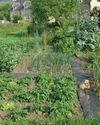
Preparing the Veg Patch for Winter
Lee Senior says, a well-run plot can excitingly continue to produce good quality, tasty, fresh food for much of winter
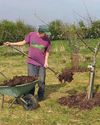
Time to prepare to plant your orchard
Wade Muggleton, smallholder and author of The Orchard Book, shares his practical experience so you can create your own fruit collection
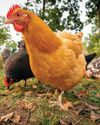
Choosing feed for the autumn
As autumn approaches, Joanna Palmer, nutritionist at the Smallholder Range, offers advice on choosing the right feed to support your adult birds through their annual moult and ensure your young birds grow and finish well at this time of the year.
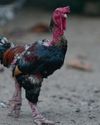
Vet advice from an experienced poultry vet
Reflecting on how much the humble hen has helped people world wide plus advice on stopping the scourge of red mite
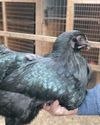
Give your hens some support
Paul Donovan looks at the right and wrong ways of handling birds